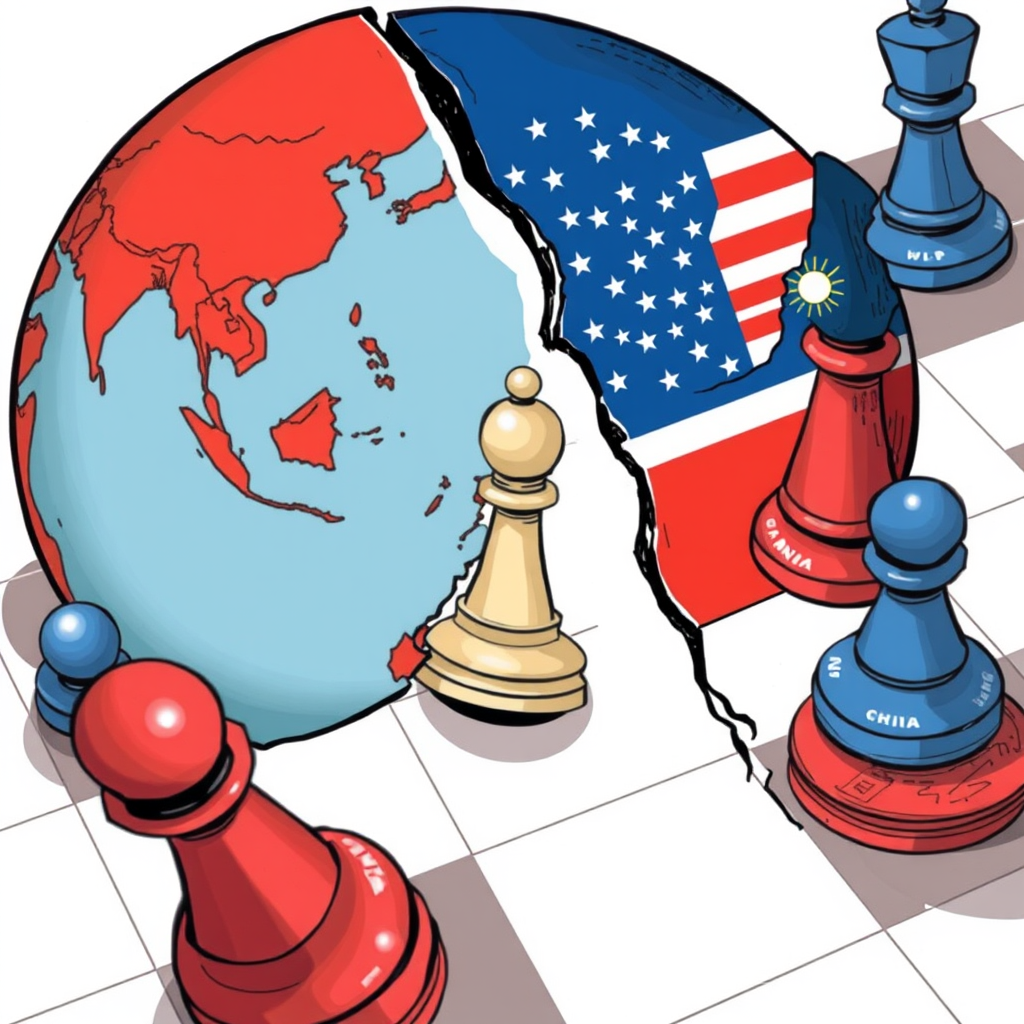China Accuses US of Fueling Asia Conflict

Beijing sharply criticized U.S. Defense Secretary Pete Hegseth on Sunday, accusing him of promoting a “Cold War mentality” following his assertion that China poses an “imminent” threat. The Chinese Ministry of Foreign Affairs urged the U.S. to cease “inciting conflict” in the Asia-Pacific region and respect the efforts of regional nations to maintain stability.
The rebuke followed Hegseth’s address at the Shangri-La Dialogue defense conference in Singapore, where he warned of China’s ambitions to “dominate and control” parts of the region, specifically citing intimidation of vessels in contested waters and harassment of Taiwan. He argued that Beijing is actively preparing to use military force to alter the regional balance of power, calling on other nations to increase military spending and preparedness.
China countered that Taiwan is an “internal affair” and accused the U.S. of escalating tensions in the South China Sea. A statement from the ministry asserted that the U.S., not China, is the primary disruptor of peace and stability in the Asia-Pacific. The CCP maintains its claim that Taiwan is a breakaway province and seeks eventual “reunification,” a position the U.S. does not recognize diplomatically, though it provides substantial defense support to Taiwan.
Beyond the immediate geopolitical friction, the two nations remain locked in a trade dispute. While a temporary agreement to lower tariffs was reached on May 12, progress has stalled since talks in Geneva. Former President Trump recently accused China of violating the agreement, citing economic distress and alleged unrest as a result of U.S. tariffs. China responded by criticizing U.S. export controls within the semiconductor industry.
Interestingly, JPMorgan Chase CEO Jamie Dimon offered a contrasting perspective, suggesting that internal U.S. challenges pose a greater threat than China. He emphasized the need for the U.S. to address its own shortcomings in values, capability, and management.
This escalating exchange highlights a deeply complex relationship. While China’s condemnation of Hegseth’s remarks is predictable – nations rarely welcome being labeled a threat – the underlying tensions are very real. The situation is further complicated by the ongoing trade war and differing views on Taiwan. Dimon’s assessment, while perhaps overlooked amidst the geopolitical posturing, is a crucial reminder that a nation’s strength isn’t solely defined by its external adversaries, but also by its internal cohesion and ability to address its own problems. The current trajectory suggests a continued period of heightened competition and potential instability, demanding careful diplomacy and a willingness from both sides to de-escalate rhetoric and seek common ground. The focus on military preparedness, while understandable from a defensive standpoint, risks creating a self-fulfilling prophecy, where increased tensions lead to further escalation. A more constructive approach would prioritize dialogue, transparency, and a commitment to resolving disputes through peaceful means.